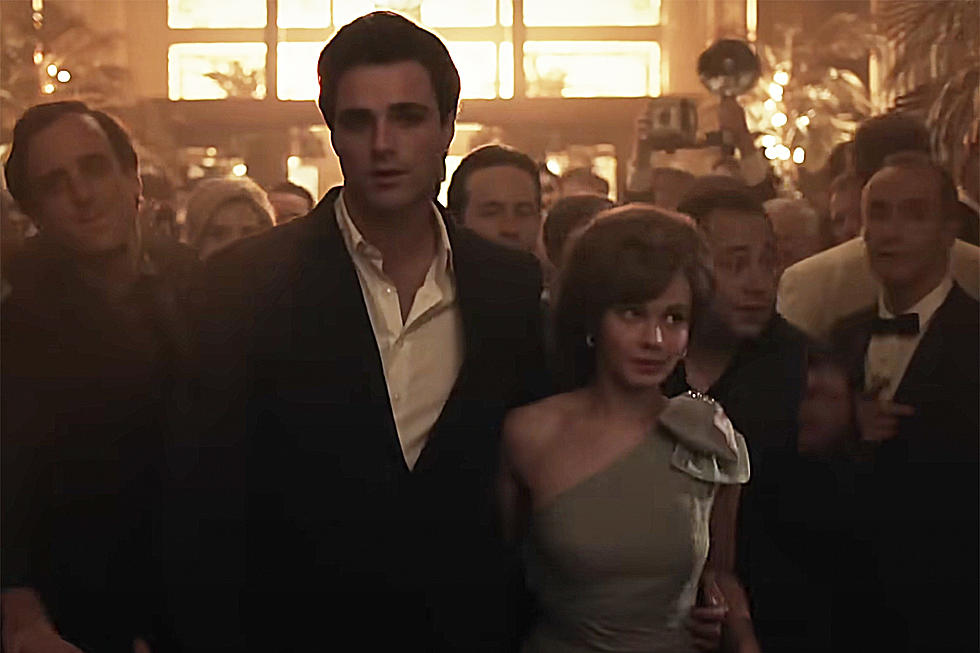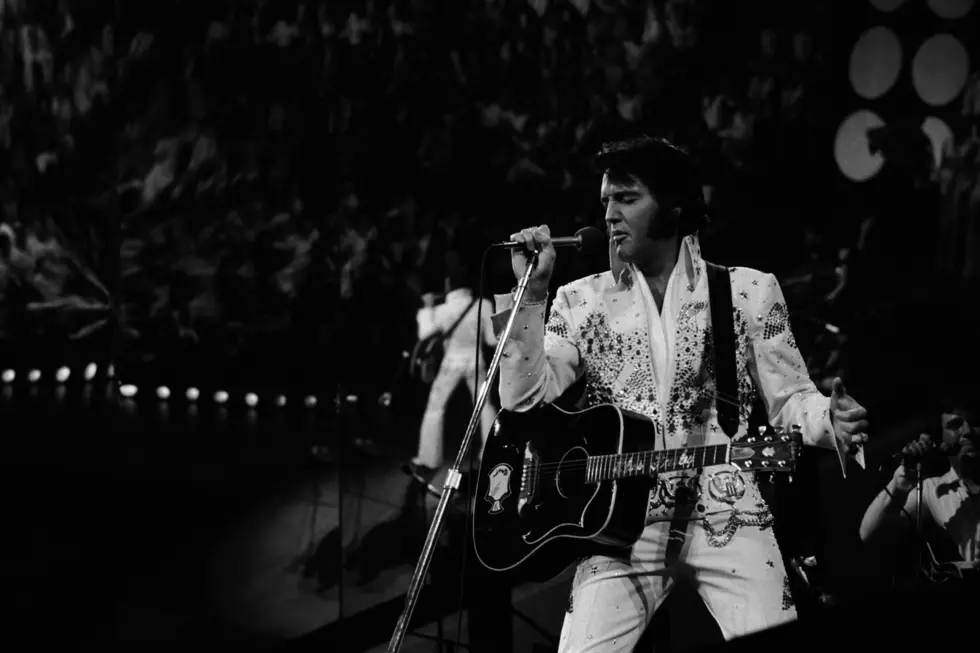
When Elvis Presley Left Sun Records for RCA
By the mid-'50s, Elvis Presley's blend of rockabilly, R&B and blues had made him a sensation throughout the South. Presley scored regional hits that included "That's All Right" and "Baby Let's Play House" for Sun Records, a small Memphis label owned by producer Sam Phillips.
Then financial pressures forced Phillips to sell Presley's contract to RCA Records on Nov. 21, 1955. The new label's extensive promotion and distribution network helped make Presley rock 'n' roll's first superstar.
The deal was put together by Colonel Tom Parker, the wily promoter who had become a "special adviser" to Presley and his manager, Bob Neal. Parker and Neal were there with Presley when Phillips hosted the signing at the Sun studio. RCA representatives came from across the country. Also on hand were the singer's parents, Gladys and Vernon Presley.
"I feel Elvis is one of the most talented youngsters today," Phillips told the Memphis Press-Scimitar at the announcement of the signing. "And by releasing his contract to RCA-Victor we will give him the opportunity of entering the largest organization of its kind in the world, so his talents can be given the fullest opportunity."
It was not just altruism that prompted Phillips to sell the singer's contract; Phillips needed the money for Sun Records to survive. Sun was near bankruptcy due to mounting debt, high manufacturing costs and legal actions. Phillips treasured his independence but realized Sun's size could not accommodate the growing demand for Presley.
Enter the Colonel, a former carnival barker who managed RCA country star Hank Snow. In 1955, Snow called his music publisher, Julian Aberbach, and said he "had something interesting to discuss." Aberbach headed Hill and Range, the publishing house that would later represent Presley. When they met in New York, Snow told Aberbach about an exciting young talent he'd seen.
"On the road he saw a singer who performed without a cowboy uniform," recalled Aberbach on his website. "The singer worked in a white shirt and black pants, with a guitar, and he was so popular that the girls chased him off the stage. Hank said his name was Elvis Presley."
Aberbach soon met Parker in Las Vegas. "I told Parker about Elvis Presley and that I would go to Louisiana the next week to check him out. I went to Shreveport the following week, where Elvis appeared on the Louisiana Hayride television program. I found him to be absolutely phenomenal."
Listen to Elvis Presley Sing 'Heartbreak Hotel'
So did the Colonel, who signed his first contract with Presley in August 1955. Parker was given the authority to "negotiate and assist in any way possible the build-up of Elvis Presley as an artist." The agreement required that "Col. Parker is to negotiate all renewals on existing contracts."
Parker didn't hesitate to use his new power to negotiate on Presley's behalf. In order to shop Presley to another label, Parker asked Phillips to name his price for the singer's contract. Phillips' answer: $35,000 plus $5,000 to pay back royalties that Sun owed Presley. The price at the time was considered astronomical, more than had ever been paid for a singer.
Despite his ties with RCA, Parker entertained offers from other labels that included Columbia, Mercury and Atlantic Records. In Elvis and the Memphis Mafia Presley confidant Marty Lacker recalled that Atlantic's founder Ahmet Ertegun "was passionate about black music — R&B and blues and jazz. He had an honest love for it, and he was trying to get black artists and the black sound into mainstream America."
"Elvis conveyed the same feeling the black artists did," he continued ."that they came from the same roots. I think he saw what Sam Phillips did — that Elvis had the same insecurity as black people, that he identified with their oppression, and that it came out in his music. So he went after Elvis's contract. But RCA won out. Because Atlantic stopped at $25,000. They just didn't have any more money."
Included in the deal were all of the sides Presley recorded at Sun. Shortly after signing, RCA re-released Presley's five Sun singles, and the label had the strength to promote its new star's records in the country, R&B and pop markets.
Parker became Presley's sole manager in 1956 as Presley began recording new material for RCA. His debut single, "Heartbreak Hotel," reached No. 1 on the Billboard Top 100 chart. The King's first album, Elvis Presley, featured the hit "Blue Suede Shoes." The LP topped the charts and became RCA's first million-selling album by a single artist.
"When Elvis signed with the Colonel, and they put that deal together with RCA, son, it broke wide open," added Presley's lighting director Lamar Fike. "RCA sold 12.5 million singles and 2.75 million albums during Elvis's first year with the label. What happened was, in pop music, except for Pat Boone and Bill Haley, the business had been controlled by older singers — Tony Martin, Frank Sinatra, Perry Como, Tony Bennett. Elvis kicked the door open, and for the first time, young people had their own music. Elvis was the musical counterpart to James Dean — he gave that generation a voice."
See How Rock's Biggest Acts Got Their Names
See Elvis Presley in Rock’s Craziest Conspiracy Theories
More From Ultimate Classic Rock









